 “My first great love was jazz,” Eliane Elias told me recently. “At age 10 and 11, I used to spend hours and hours transcribing my mother’s jazz records; [by contrast,] the samba and bossa nova were just part of the DNA of the culture.” Her new album, Dance of Time, celebrates the 100th anniversary of the first samba recording. DownBeat published a short version of the Q&A in its June issue. Below is a longer one.
“My first great love was jazz,” Eliane Elias told me recently. “At age 10 and 11, I used to spend hours and hours transcribing my mother’s jazz records; [by contrast,] the samba and bossa nova were just part of the DNA of the culture.” Her new album, Dance of Time, celebrates the 100th anniversary of the first samba recording. DownBeat published a short version of the Q&A in its June issue. Below is a longer one.
Eliane Elias Returns to Sao Paulo and the Samba
Samba is in Eliane Elias’ blood, but it was not the Brazilian singer-pianist’s first love. A piano prodigy in her native São Paulo, she was copping Red Garland licks as a jazz-besotted 12-year-old. Jazz always came first.
It still does. “My first great love was jazz,” she said recently. “At age 10 and 11, I used to spend hours and hours transcribing my mother’s jazz records; [by contrast,] the samba and Bossa Nova were just part of the DNA of the culture.”
For most of her career, including more than two dozen albums, her focus was on her spectacular, straight-ahead jazz piano style. In 2015, however, she returned to Brazil to record for the first time since she emigrated to New York in 1981. The result was 2015’s Grammy-winning Made in Brazil. For her latest album, Dance of Time, which commemorates the 100th anniversary of the first samba recording (“Pelo Telefone”), she once again chose to record in Brazil. The album includes a mix of samba classics (“Copacabana,” “O Pato,” “Sambou, Sambou”), original ballads, and standards.
In São Paulo, Elias had help from an enormously talented rhythm section including guitarist Marcus Teixeira, electric bassist Marcelo Mariano, and drummer Edu Ribeiro. Also on hand were some distinguished collaborators: two of her mentors, the Brazilian singer-songwriter-guitarist Toquinho and pianist Amilton Godoy, a founding member of the Zimbo Trio; singer/guitarist João Bosco; Mark Kibble of Take 6, who contributes lush vocal harmonies on three tracks; vibes player Mike Mainieri; and Randy Brecker (Elias’ ex-husband), who plays flugelhorn on a reharmonized version of “Speak Low.” Her current husband and regular acoustic bassist, Marc Johnson, co-produced the set.
Do you think of yourself these days as a pianist who happens to sing, or do you give both equal weight?
Eliane Elias: I feel I am a pianist first, although I’ve been singing for a long time, and it’s an integral part of what I do. But the piano – that’s my instrument. It’s like the continuation of my body, my soul.
How do you balance singing and playing?
Maybe 15 years ago I wasn’t as comfortable doing it as now. But I have gotten to a place where I love singing and playing. In fact, when I’m playing Brazilian things and doing all the syncopation, just the piano alone – with lots of offbeats in the left hand and improvising with the right – already that’s like two people. And then you add the voice, and it’s like, wow, OK!” [laughs].
It does sometimes seem like there are three of you when you’re singing and playing.
[Laughs] I shouldn’t say so, but you’re not too far off.
Why did you decide to record Dance of Time in Brazil?
I wanted to celebrate the samba, but I also wanted to celebrate these great Brazilian musicians who were so important in my life.
Is the rhythm section one that you couldn’t duplicate outside of Brazil?
Frankly, yes.
The current album dispenses with the strings you used on your last album. Why?
Traditionally, I haven’t recorded with strings. This time, the harmonies and the tempos were different. As I was writing the arrangements, I felt we had to focus on the samba rhythms of my left hand – they had to be front and center. There were a few ballads where strings might have been nice, though. On [the ballad] “Little Paradise,” I thought about having Johnny Mandel write the strings. He wanted to work with me, and I was so honored. It didn’t happen, unfortunately, for logistical reasons. But when I recorded the song, there’s a moment that I sing, “A melody comes back to me / that we heard before,” and, at that moment, I quote a melody that was written by Johnny. But let’s not say which one it is – let people figure it out!
The final song on the album, “Not to Cry (Pra Nao Chorar),” a duet with Toquinho, is especially touching.
When Toquinho was in the studio with me, I reminded him that he had started a song back in 1978. I played a little of it, and he said, “Oh my, I forgot!” At the time he had called the song “Eliane,” but it was unfinished. The lyrics [in Portuguese] are all about our story – how he and I used to tour together in the 1970s with [the great Brazilian poet, lyricist and entertainer] Vinicius de Moraes, and how now he looks at photographs of that time and tries not to cry. So we finished it together. The lyrics he wrote are so beautiful they made me cry.

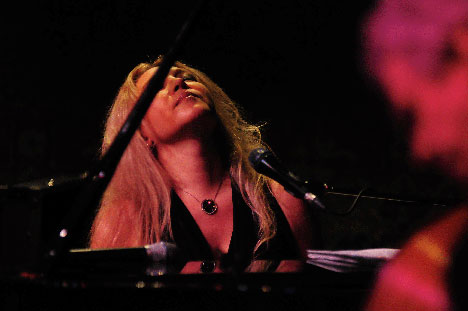
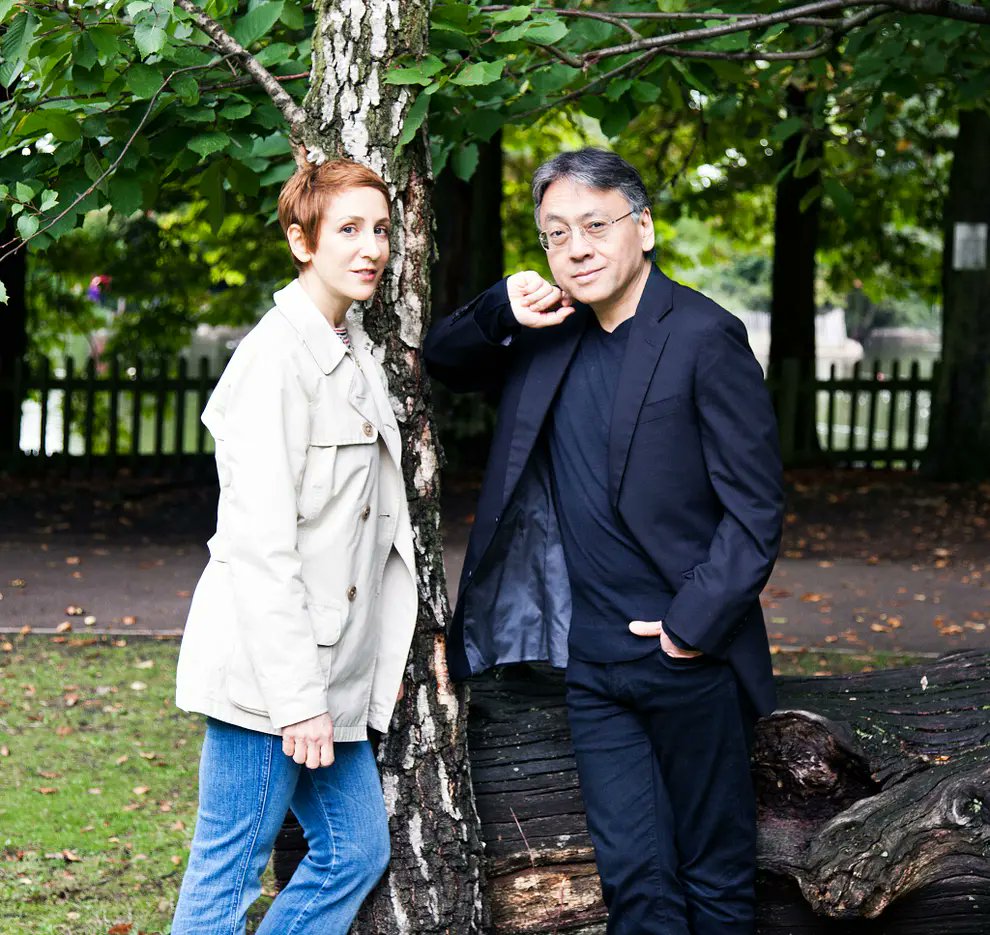 Stacey Kent, Jim Tomlinson, and Kazuo Ishiguro “Wish They Could Go Travelling Again” (Jazziz, April 2021)
Stacey Kent, Jim Tomlinson, and Kazuo Ishiguro “Wish They Could Go Travelling Again” (Jazziz, April 2021) Maria Schneider Profile/Interview (DownBeat, 12/16 Cover Story)
Maria Schneider Profile/Interview (DownBeat, 12/16 Cover Story) Jon Batiste's Love Riot (DownBeat, April 2017)
Jon Batiste's Love Riot (DownBeat, April 2017)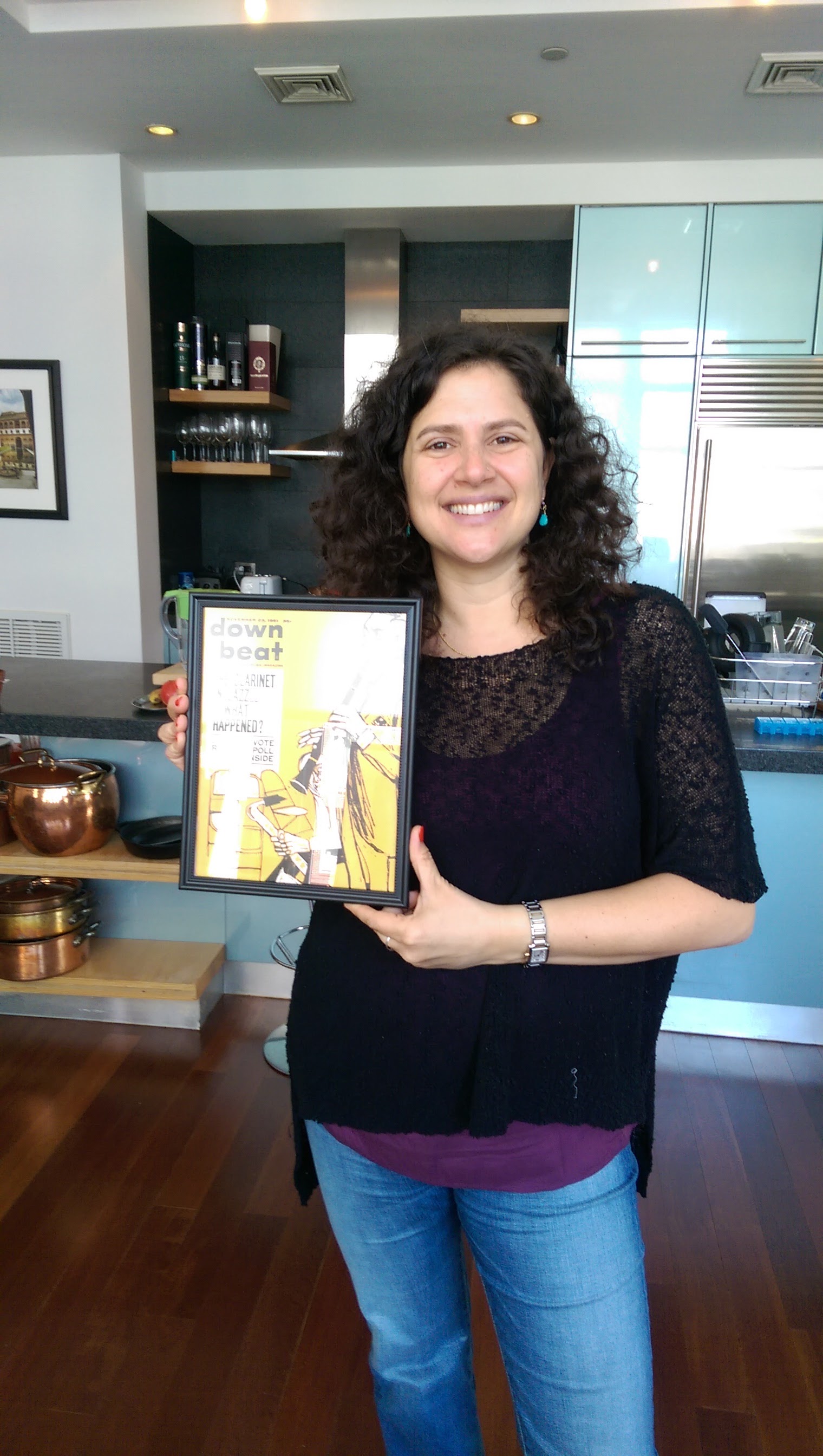 Anat Cohen – "Perfect Accent" (DownBeat, July 2017)
Anat Cohen – "Perfect Accent" (DownBeat, July 2017)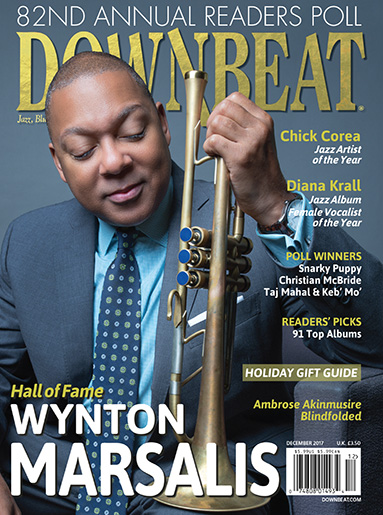 Wynton Marsalis – Building the Cathedral (DownBeat, Dec. 2017)
Wynton Marsalis – Building the Cathedral (DownBeat, Dec. 2017) Kurt Elling on "The Questions" (DownBeat June 2018)
Kurt Elling on "The Questions" (DownBeat June 2018) Miles Evans Talks About His Dad, Gil (DownBeat, Mar. 2019)
Miles Evans Talks About His Dad, Gil (DownBeat, Mar. 2019) Singer Allegra Levy: "Lose My Number" (JazzTimes, Dec. 2020)
Singer Allegra Levy: "Lose My Number" (JazzTimes, Dec. 2020) How I Fell In Love With Jazz – Uncle Sam's Jukebox
How I Fell In Love With Jazz – Uncle Sam's Jukebox Sarah Vaughan Jazz Vocal Competition: London's Deelee Dubé and Denmark's Sinne Eeg Shine (Jazz Times, 11/23/16)
Sarah Vaughan Jazz Vocal Competition: London's Deelee Dubé and Denmark's Sinne Eeg Shine (Jazz Times, 11/23/16) A Conversation with Catherine Russell (Jazz Times, Dec. 2016)
A Conversation with Catherine Russell (Jazz Times, Dec. 2016) Troubled Genius – The Making of Don Cheadle's film "Miles Ahead" (DownBeat, Apr 2016)
Troubled Genius – The Making of Don Cheadle's film "Miles Ahead" (DownBeat, Apr 2016)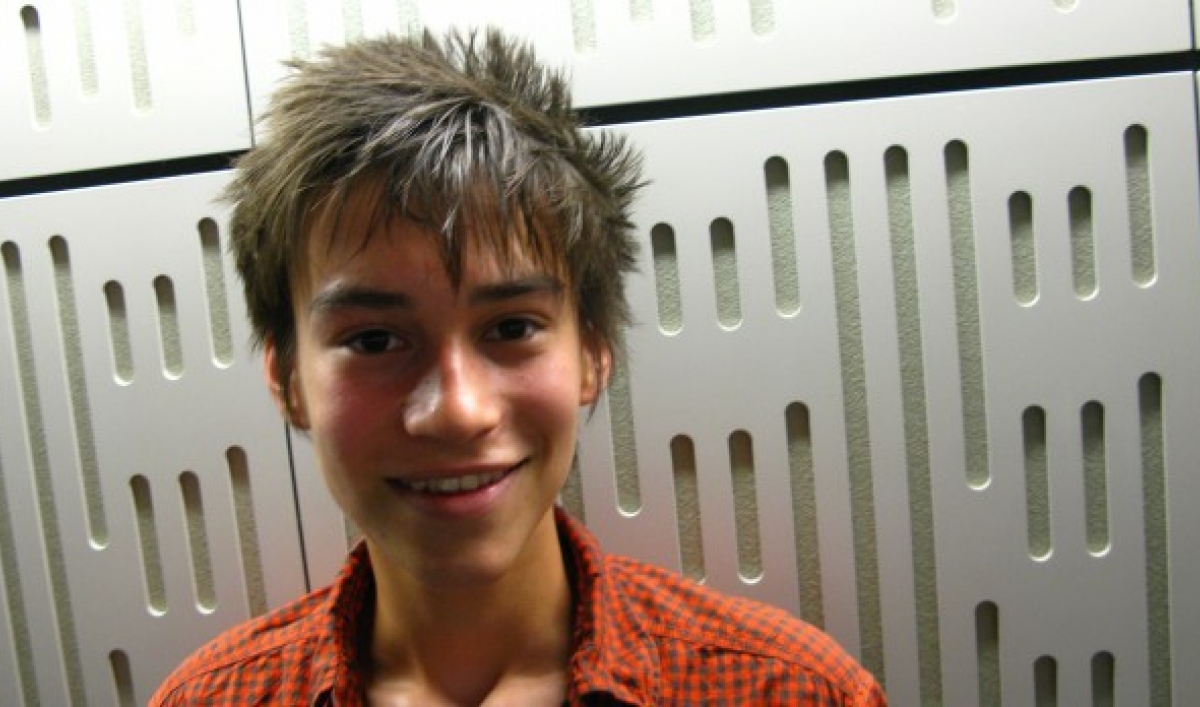 "In Jacob Collier’s Room" (DownBeat, Sept 2016)
"In Jacob Collier’s Room" (DownBeat, Sept 2016) Duchess – Laughing at Life (CD Review, DownBeat 3-17)
Duchess – Laughing at Life (CD Review, DownBeat 3-17) Duchess Brings Harmony and Hijinks to NYC's 55 Bar (DownBeat, 2/27/17)
Duchess Brings Harmony and Hijinks to NYC's 55 Bar (DownBeat, 2/27/17)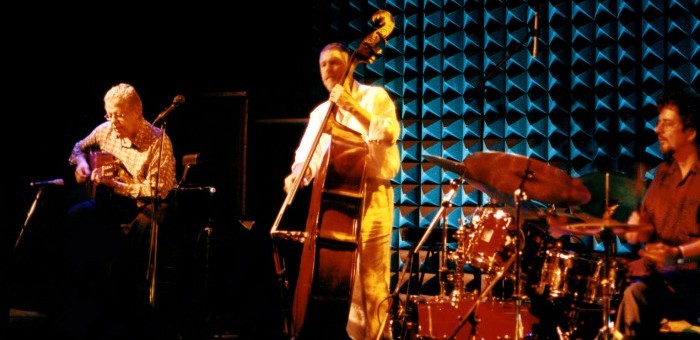 Trio da Paz Celebrates 30 Years Together (DownBeat, 1/3/17)
Trio da Paz Celebrates 30 Years Together (DownBeat, 1/3/17) Newport Fest Highlights Soloists and Teamwork (DownBeat.com 8/17/17)
Newport Fest Highlights Soloists and Teamwork (DownBeat.com 8/17/17) Catching Up With Russell Malone (Jazz Times, August 2016)
Catching Up With Russell Malone (Jazz Times, August 2016)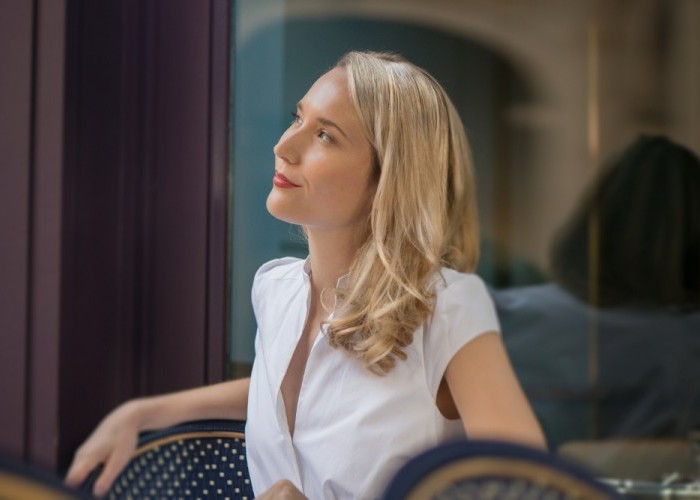 Australian Singer-Pianist Sarah McKenzie, in NYC, is Thinking About Paris and San Francisco
Australian Singer-Pianist Sarah McKenzie, in NYC, is Thinking About Paris and San Francisco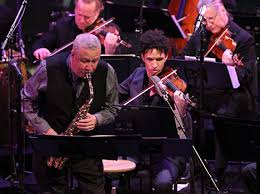 Bird Lives! Paquito D’Rivera revives “Charlie Parker w/Strings” at JALC (DownBeat, April 2013)
Bird Lives! Paquito D’Rivera revives “Charlie Parker w/Strings” at JALC (DownBeat, April 2013) The New York Voices — 25 Years of Vocal Excellence (DownBeat, June 2013)
The New York Voices — 25 Years of Vocal Excellence (DownBeat, June 2013) Eliane Elias at the Toronto Jazz Festival (DownBeat, 7/2/13)
Eliane Elias at the Toronto Jazz Festival (DownBeat, 7/2/13)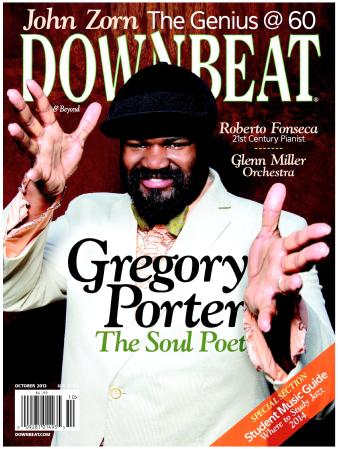 Gregory Porter – The Storyteller (DownBeat)
Gregory Porter – The Storyteller (DownBeat)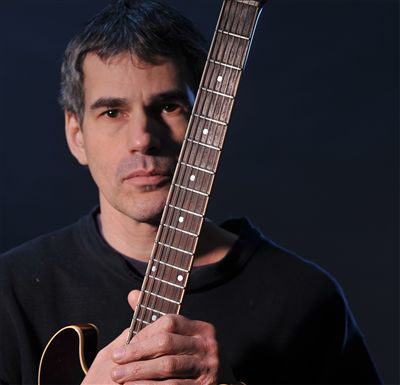 Guitarist Ben Monder's Stunning "Hydra" (my review in Nov. 2013 DownBeat)
Guitarist Ben Monder's Stunning "Hydra" (my review in Nov. 2013 DownBeat)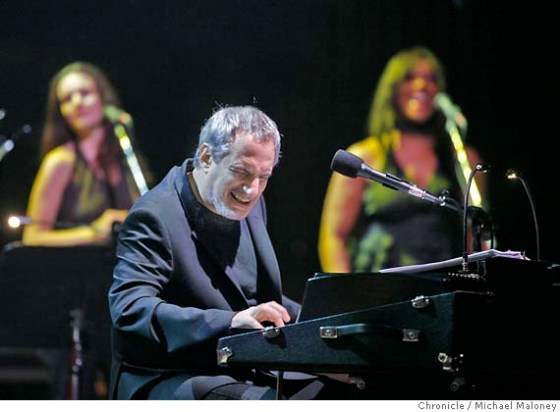 Donald Fagen – An Eminent Hipster Speaks
Donald Fagen – An Eminent Hipster Speaks Seven New Vocal CDs – From 'Trad' to Rad
Seven New Vocal CDs – From 'Trad' to Rad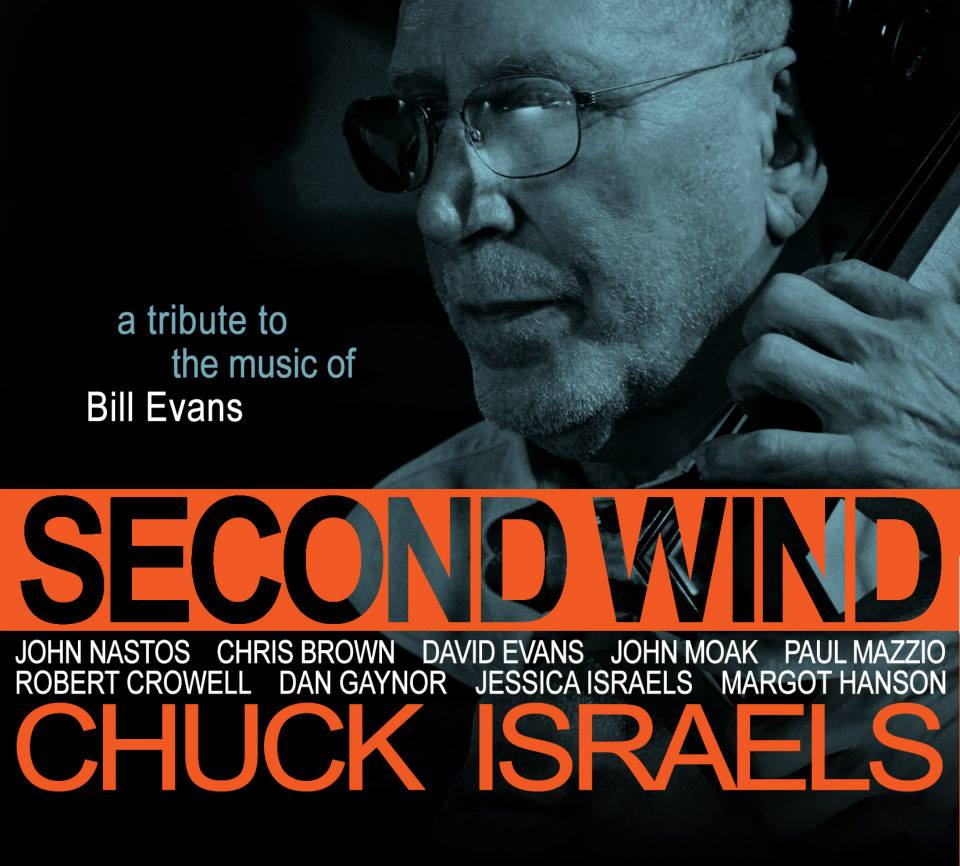 "Second Wind" – Chuck Israels' Tribute to Bill Evans, his Former Partner
"Second Wind" – Chuck Israels' Tribute to Bill Evans, his Former Partner Cassandra Wilson Reprises "Blue Light" in NYC (DownBeat, April '14)
Cassandra Wilson Reprises "Blue Light" in NYC (DownBeat, April '14) Lauren Kinhan – "Circle In A Square" review
Lauren Kinhan – "Circle In A Square" review Catherine Russell – "Bring It Back" CD Review – DownBeat, Apr 2014
Catherine Russell – "Bring It Back" CD Review – DownBeat, Apr 2014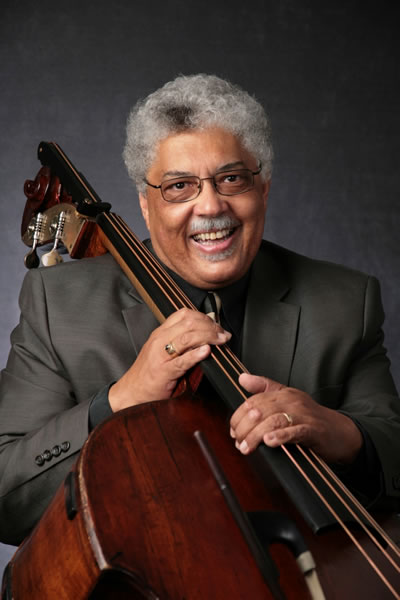 Rufus Reid: Still Evolving (DownBeat – June 2014)
Rufus Reid: Still Evolving (DownBeat – June 2014)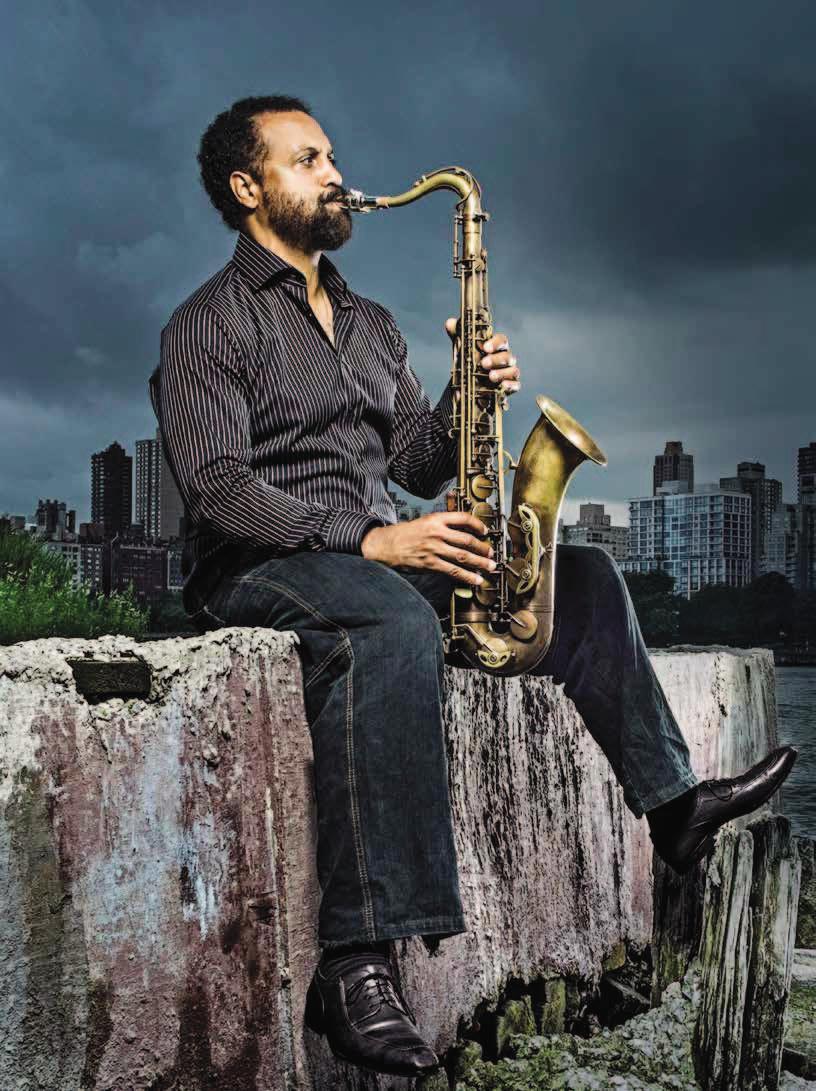 Saxophonist Craig Handy – Serious Fun (DownBeat, March 2014)
Saxophonist Craig Handy – Serious Fun (DownBeat, March 2014) Stacey Kent Weaves a Subtle Spell at Birdland – review from DownBeat.com, 12-27-13
Stacey Kent Weaves a Subtle Spell at Birdland – review from DownBeat.com, 12-27-13 Stacey Kent – The Changing Lights
Stacey Kent – The Changing Lights Bob Dorough, 90, Is Still Hip
Bob Dorough, 90, Is Still Hip Paquito D’Rivera & Trio Corrente Light Up MIMO Fest in Brazil
Paquito D’Rivera & Trio Corrente Light Up MIMO Fest in Brazil Cecile McLorin Salvant: Young Provacateur (DownBeat cover story, 8/14)
Cecile McLorin Salvant: Young Provacateur (DownBeat cover story, 8/14) Jazz Legends of the Winter (Jazz Fest) – DownBeat 1/28/15
Jazz Legends of the Winter (Jazz Fest) – DownBeat 1/28/15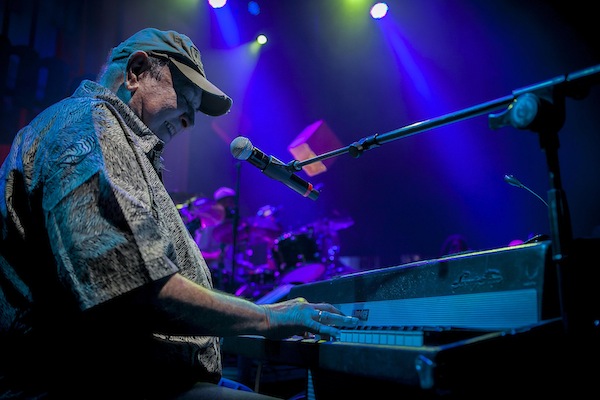 At 80, Bossa Nova Pioneer Joao Donato Isn't Slowing Down (DownBeat, 12/5/14)
At 80, Bossa Nova Pioneer Joao Donato Isn't Slowing Down (DownBeat, 12/5/14)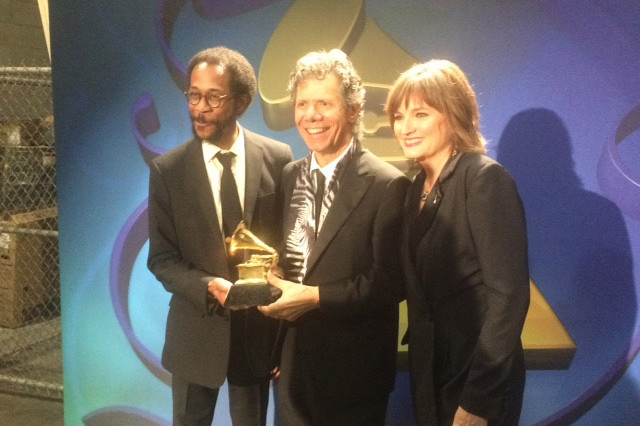 "Chick Corea – The Music Defies Words" (DownBeat 12/14)
"Chick Corea – The Music Defies Words" (DownBeat 12/14) Taj Mahal Satisfies and Tickles, Too at SFJazz (DownBeat.com, 3/12/15)
Taj Mahal Satisfies and Tickles, Too at SFJazz (DownBeat.com, 3/12/15)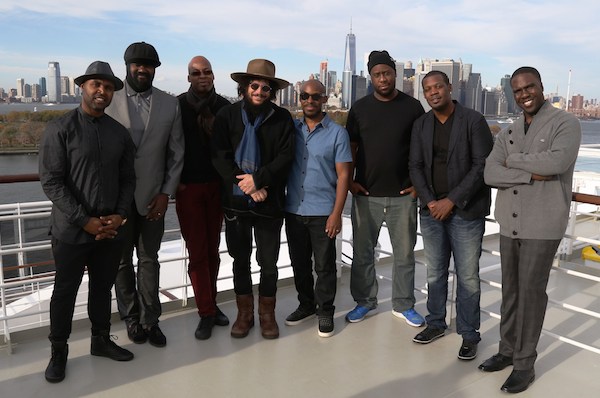 Gregory Porter and All-Stars Celebrate Blue Note Records' 75th Anniversary at Sea (DownBeat, Dec. 2015)
Gregory Porter and All-Stars Celebrate Blue Note Records' 75th Anniversary at Sea (DownBeat, Dec. 2015) Jive Samba – Duduka da Fonseca (Jazz Times)
Jive Samba – Duduka da Fonseca (Jazz Times) Bossa Nova Pioneer Carlos Lyra Returns to U.S. for First Time in 50 Years (DownBeat, 6/3/15)
Bossa Nova Pioneer Carlos Lyra Returns to U.S. for First Time in 50 Years (DownBeat, 6/3/15) DownBeat Visits Catherine Russell in Studio for ‘Harlem’ Sessions (DownBeat, 12-11-15)
DownBeat Visits Catherine Russell in Studio for ‘Harlem’ Sessions (DownBeat, 12-11-15) Newport 2014 Review, Part 2 (Marsalis, JLCO, Dee Dee Bridgewater)
Newport 2014 Review, Part 2 (Marsalis, JLCO, Dee Dee Bridgewater) Bebop royalty join new vocal jazz group in historic vocalese summit (DownBeat, 9/22/15)
Bebop royalty join new vocal jazz group in historic vocalese summit (DownBeat, 9/22/15) Bill Withers Returns to Spotlight for Carnegie Hall Tribute (DownBeat, 10/6/15)
Bill Withers Returns to Spotlight for Carnegie Hall Tribute (DownBeat, 10/6/15) Guitarist Jonathan Kreisberg – The Underdog (Jazz Times, July 2015)
Guitarist Jonathan Kreisberg – The Underdog (Jazz Times, July 2015) Newport Jazz Festival 2015 – My Take (DownBeat, 8-7-15)
Newport Jazz Festival 2015 – My Take (DownBeat, 8-7-15) Turning 90, legendary drummer Roy Haynes celebrates with Pat Metheny & Christian McBride (Jazz Times, 3/16/15)
Turning 90, legendary drummer Roy Haynes celebrates with Pat Metheny & Christian McBride (Jazz Times, 3/16/15)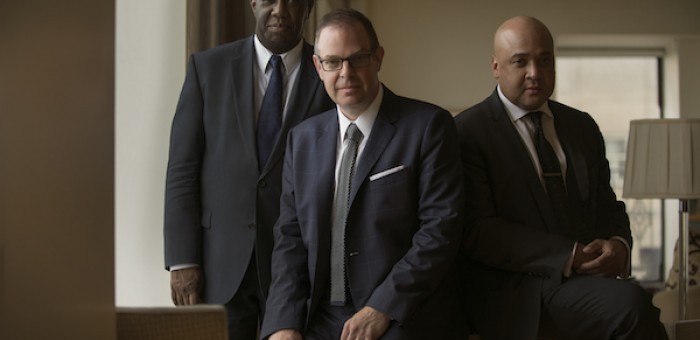 Charlap and Friends Celebrate B'way & Harlem Tunesmiths at Jazz at Lincoln Center (DownBeat, 4/13/16)
Charlap and Friends Celebrate B'way & Harlem Tunesmiths at Jazz at Lincoln Center (DownBeat, 4/13/16) Lizz Wright: Total Devotion (DownBeat, Jan. 2016)
Lizz Wright: Total Devotion (DownBeat, Jan. 2016)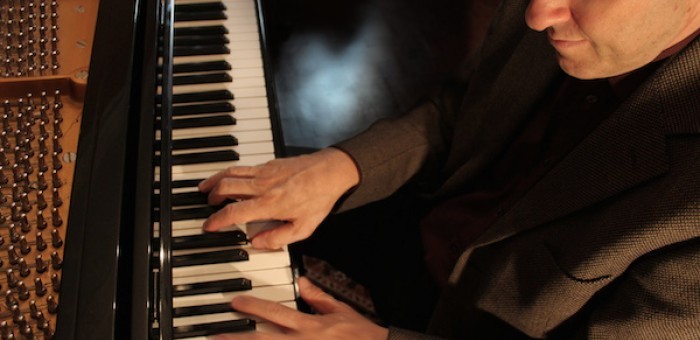 Barth Brings Eloquent, Hard-Charging Swing to Mezzrow (DownBeat, May 18, 2016)
Barth Brings Eloquent, Hard-Charging Swing to Mezzrow (DownBeat, May 18, 2016)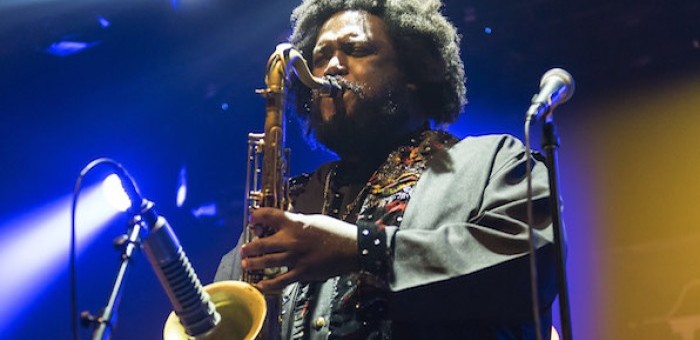 Kamasi Washington Presents Jazz-Rock Spectacle in New York (DownBeat 3/22/16)
Kamasi Washington Presents Jazz-Rock Spectacle in New York (DownBeat 3/22/16) Jon Batiste Chats About His Favorite Jazz Xmas Albums (DownBeat.com Dec 9, 2016)
Jon Batiste Chats About His Favorite Jazz Xmas Albums (DownBeat.com Dec 9, 2016)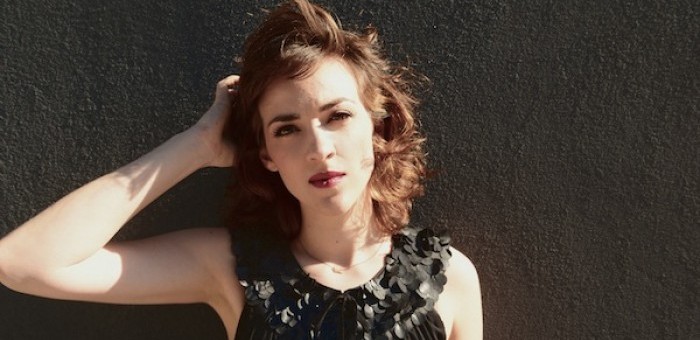 Becca Stevens Band Embraces Jazz-Folk in-Pittsburgh (DownBeat, May 31, 2016)
Becca Stevens Band Embraces Jazz-Folk in-Pittsburgh (DownBeat, May 31, 2016)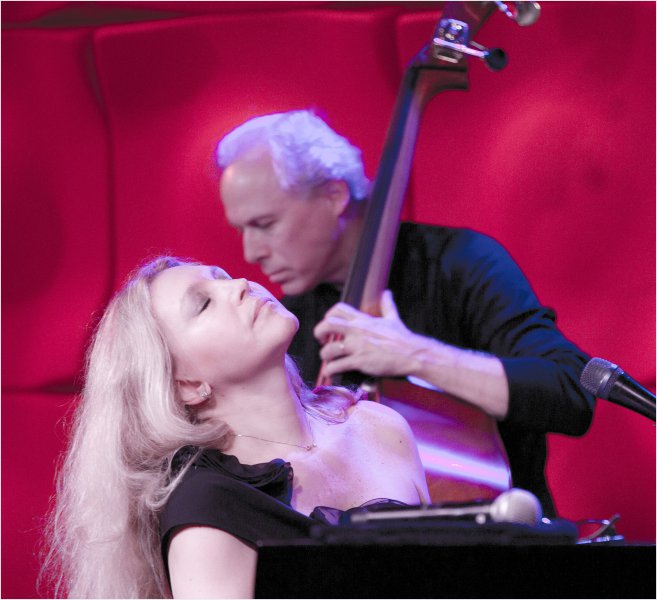 Elias Revisits Brazilian Classics at Birdland (DownBeat 4-10-15)
Elias Revisits Brazilian Classics at Birdland (DownBeat 4-10-15)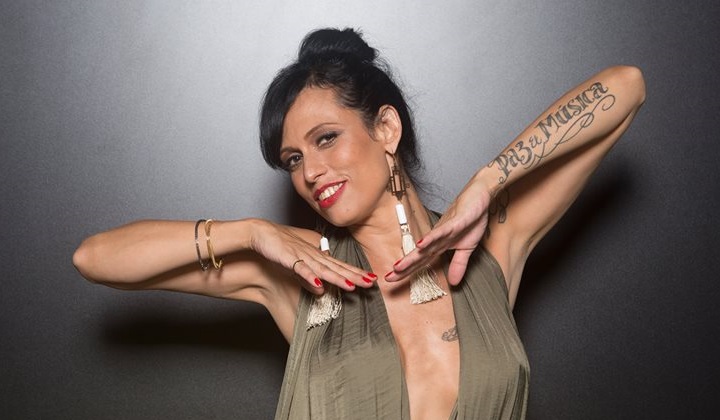 Brazilian singer Clara Moreno, daughter of Joyce, re-imagines a jazz samba classic (DownBeat, Nov. 2016)
Brazilian singer Clara Moreno, daughter of Joyce, re-imagines a jazz samba classic (DownBeat, Nov. 2016)
You must be logged in to post a comment.